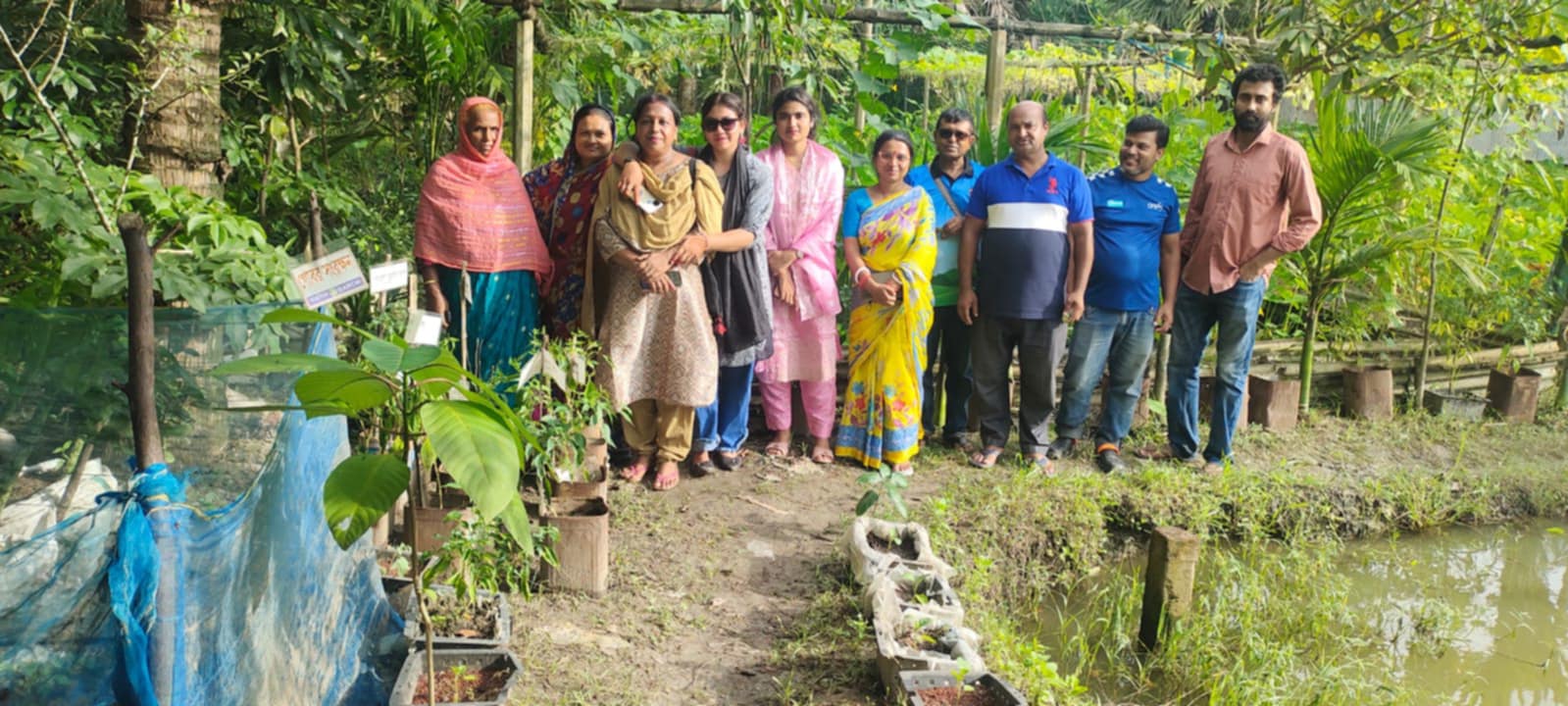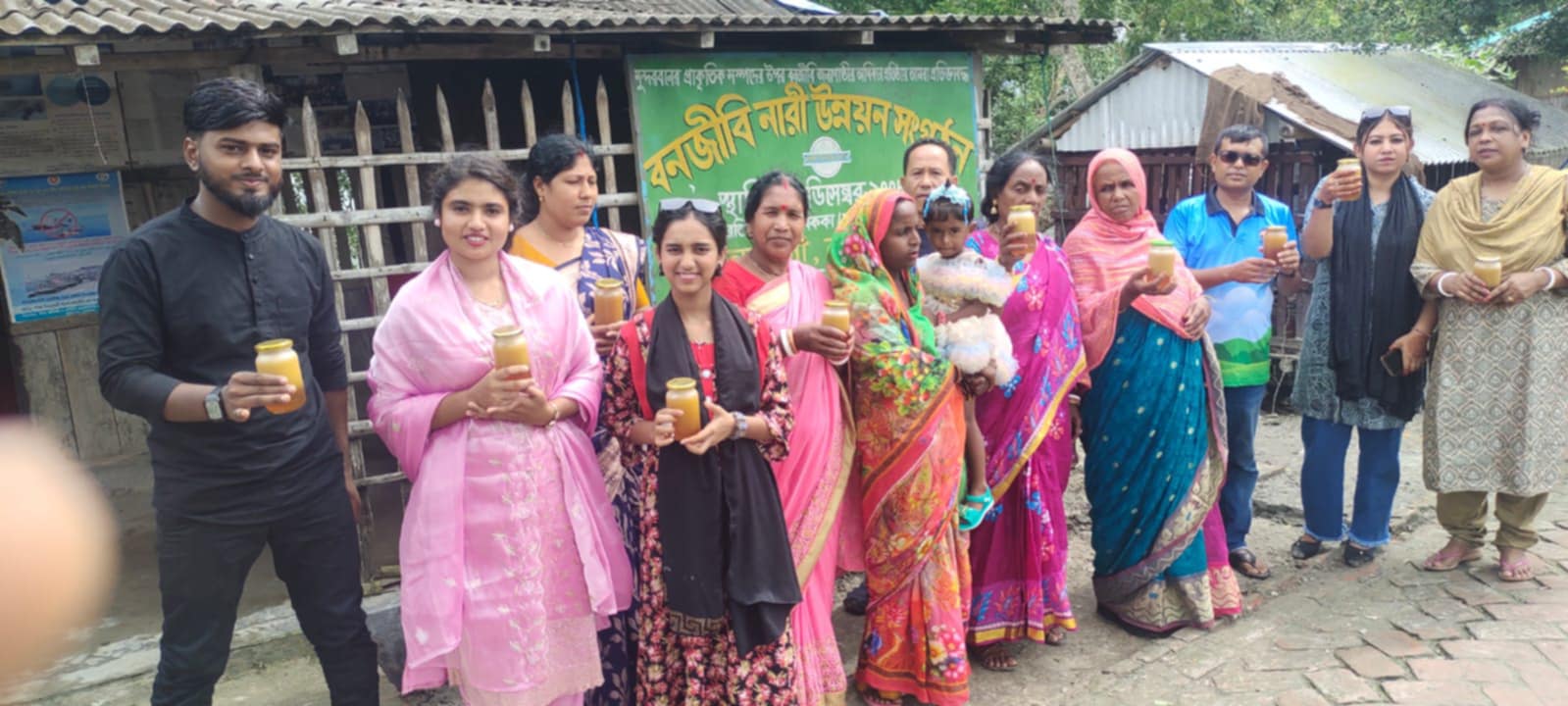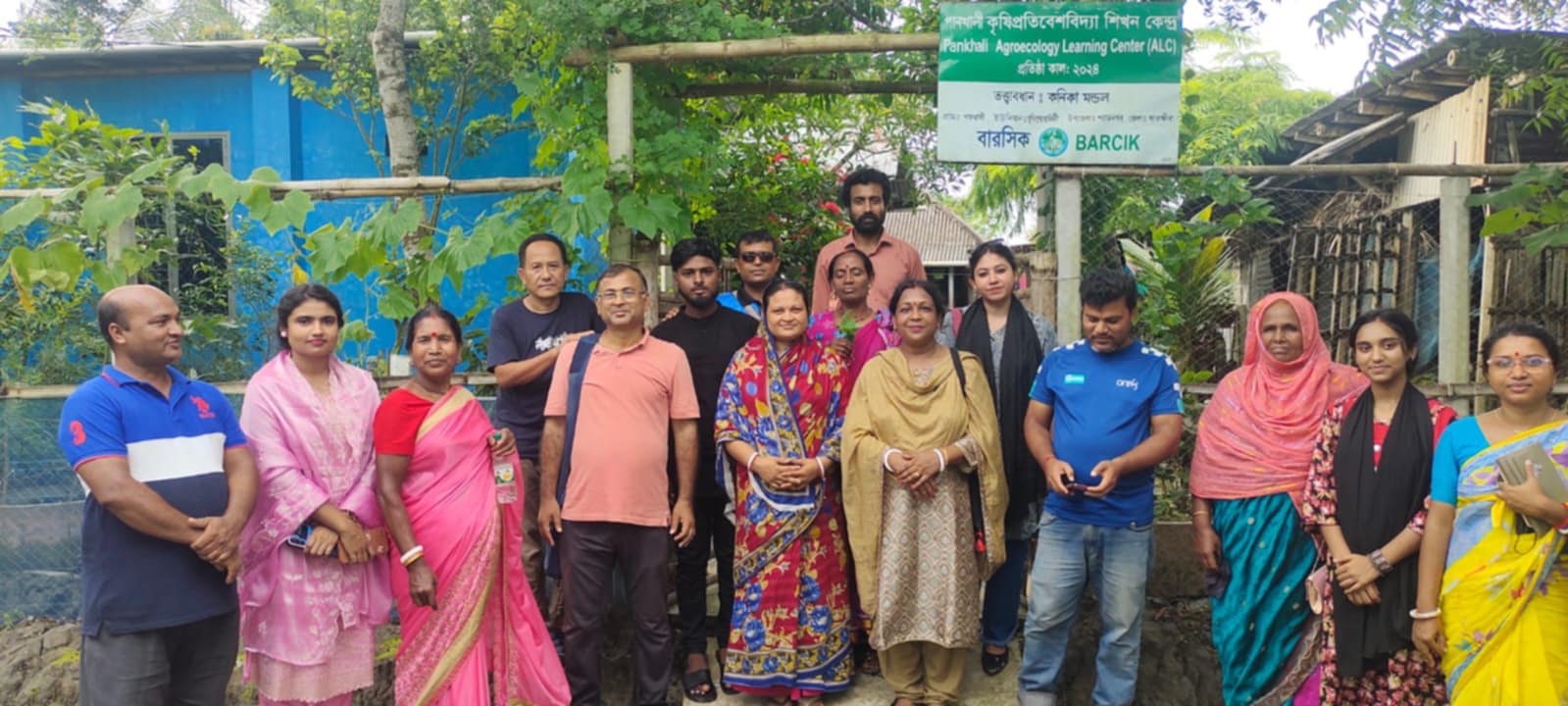By Subir Kumar Sorkar, from Manikganj
Farmers from the Agroecology Learning Centers (ALCs) in Singair, Manikganj, along with members of the Alor Dishari Teenage Girls’ Club, Shahid Rafique Youth Team, journalists, and members of Sabuj Sanghoti, visited several agroecology learning centers and initiatives in Shyamnagar, Satkhira recently. They exchanged knowledge and experiences with local women farmers and youth organizations at Mathuapur, Dakshin Sreepholkati, Terkathi (Budhghata), and Pankhali agroecology centers, as well as with members of the forest resources dependent women’s development Organization. The visit opened a new horizon of learning as they witnessed grassroots innovations and farming practices in a climate-vulnerable coastal region.

Women farmers from Manikganj shared their unique practices, including cultivating vegetables on raised beds during the monsoon, planting in bamboo clumps, cement rings, and baskets filled with soil. Some even grow vegetables on floating water hyacinth heaps or in compost pits made by cleaning household waste. Renu Bala explained how she grows crops like potatoes, garlic, and taro using mulching techniques with straw and husk. Rashida Begum discussed seed conservation by season, making compost in bamboo pits, and practicing mixed cropping on both homestead and fallow lands. She also highlighted the use and cultivation of medicinal plants at home.
Farmers in Shyamnagar showcased their innovative approaches to address salinity and climate challenges. Sarma Rani Mondol shared how they use trial-based vegetable farming and grow crops like taro on rice husk beds to combat salinity. Gobinda Mondol emphasized that personal curiosity sparked his farming initiatives and led to establishing an agricultural learning center to support others. He described integrated farming models like cultivating vegetables on trellises while raising ducks underneath.

Alpana Rani Mintree shared how farmers are recognized and awarded for their innovations, how seeds are shared among farmers during crises, and how regional experience-sharing can expand sustainable practices. Kanika Mondol said that producing food at home reduces market dependency, and year-round vegetable cultivation is possible in pots and containers around the house.
Shefali Bibi from the Sundarbans told the heart-wrenching story of her life collecting honey in the forest, and how women have now organized themselves and become self-reliant through income-generating activities. She said that experience-sharing strengthens women’s organizations.

Youth team members discussed their disaster-time initiatives and emphasized how exchanging ideas and reflections helps enrich their efforts.
From BARCIK, the Manikganj team included Beauty Sarker, Subir Kumar Sarker, and Reena Akter. The Shyamnagar team included Ramkrishna Joardar, Md. Mofiz Uddin, Bablu Joardar, Bishwajit Mondol, Barsha Gayan, and Kanika Pain.
